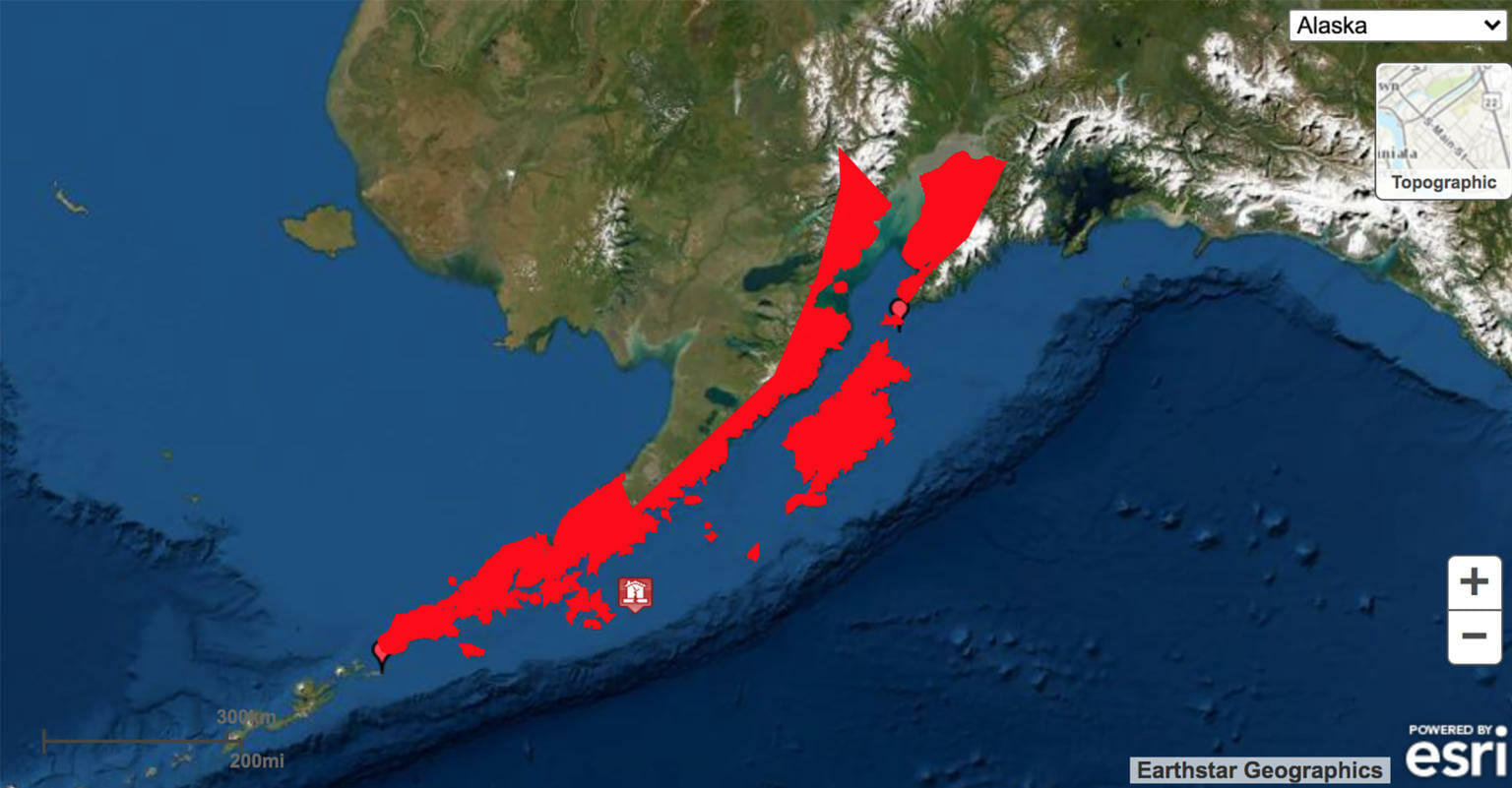
Update at 11:50 p.m.
After an Aleutian earthquake prompted a tsunami warning Tuesday night, residents across coastal Alaska, from Homer to Unalaska, woke to the sounds of sirens and phone warnings and many quickly left home, moving to higher ground.
Following a magnitude 7.8 earthquake Tuesday night south of Chignik, the National Tsunami Warning Center issued a warning for coastal Alaska from Kennedy Entrance, 40 miles southwest of Homer, to Unimak Pass, 80 miles northeast of Unalaska. Coastal areas of Southeast Alaska were not included in the warning.
The quake happened just after 10 p.m. Alaska time and was located 75 miles south of Chignik, according to the warning center. The center predicted that Sand Point, Cold Bay and Kodiak could see waves within hours. The first community predicted to see a wave, Sand Point, reported only a small wave, just after 11 p.m., said James Gridley, the director of NOAA’s National Tsunami Warning Center in Palmer. Gridley estimated the wave was about 25 centimeters.
“Very small,” he said in a phone interview around 11:30 p.m.
He said it was too soon to say what Kodiak and Cold Bay may see but “likely small if we’re already seeing small at Sand Point.”
“We’re not expecting a massive wave anywhere,” he said.
Sand Point School principal D.J. Emanuelson said the town’s alarm went off and everyone gathered in the school. He said they were all wearing masks, and people were calm.
“We haven’t seen a wave yet,” Emanuelson said. “I’m looking right now at the parking lot, the police are out there and they’re just looking off into the distance, into the ocean. But there’s no excitement here yet.”
Kodiak’s school superintendent Larry LeDoux stood outside the high school handing out masks as people entered the evacuation site around 11 p.m. By 12:15 a.m. he said the atmosphere inside was calm as people waited for news about the potential tsunami.
“I’m seeing a lot of relaxed people standing around, just sitting in bleachers or shooting hoops or a lot of people just sitting around outside and enjoying the nice weather,” he said.
Test tsunami sirens go off every Wednesday at 2 p.m. in Kodiak and LeDoux said the city has a “well-oiled system” for evacuations.
“Just a wonderful example of Alaska during a crisis,” he said. “We just work together and take care of each other.”
Julia O’Malley, Rashah McChesney, Tegan Hanlon, Kavitha George and Lex Treinen contributed to this story.






























